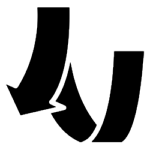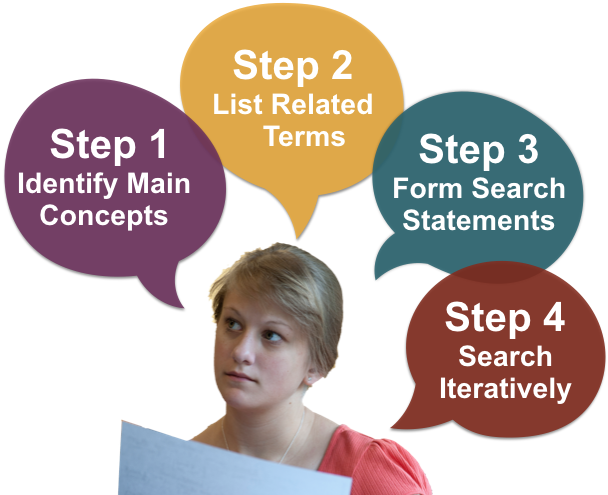16 Searching Effectively

When researching or exploring a topic, you need to develop an effective search strategy to find the best books and articles.
The first step in creating a search strategy is to identify the main concepts for your topic or research question. It is also helpful to think of synonyms or related words for your main concepts.
This video will show you how to select the best keywords and experiment with related terms to develop a good search strategy.
https://www.youtube.com/watch?v=6ihNMNTBdjk
Search Strategy
Starting with a research question helps you determine what you’re looking for. Next, you’ll need the most effective set of search terms – starting from main concepts and then identifying and alternating between related terms. Those search terms need to be arranged in the most effective way as search statements, which you actually type into a search box.

An important thing to remember is that searching is an iterative process: we try search statements, take a look at what we found and, if the results weren’t good enough, edit our search and search again—often multiple times. Most of the time, the first searches we try are not the best, even though Google or another search tool we’re using may give us many results.
It pays to search further for the sources that will help you the most. Be picky.
Here are the steps for an effective search.


